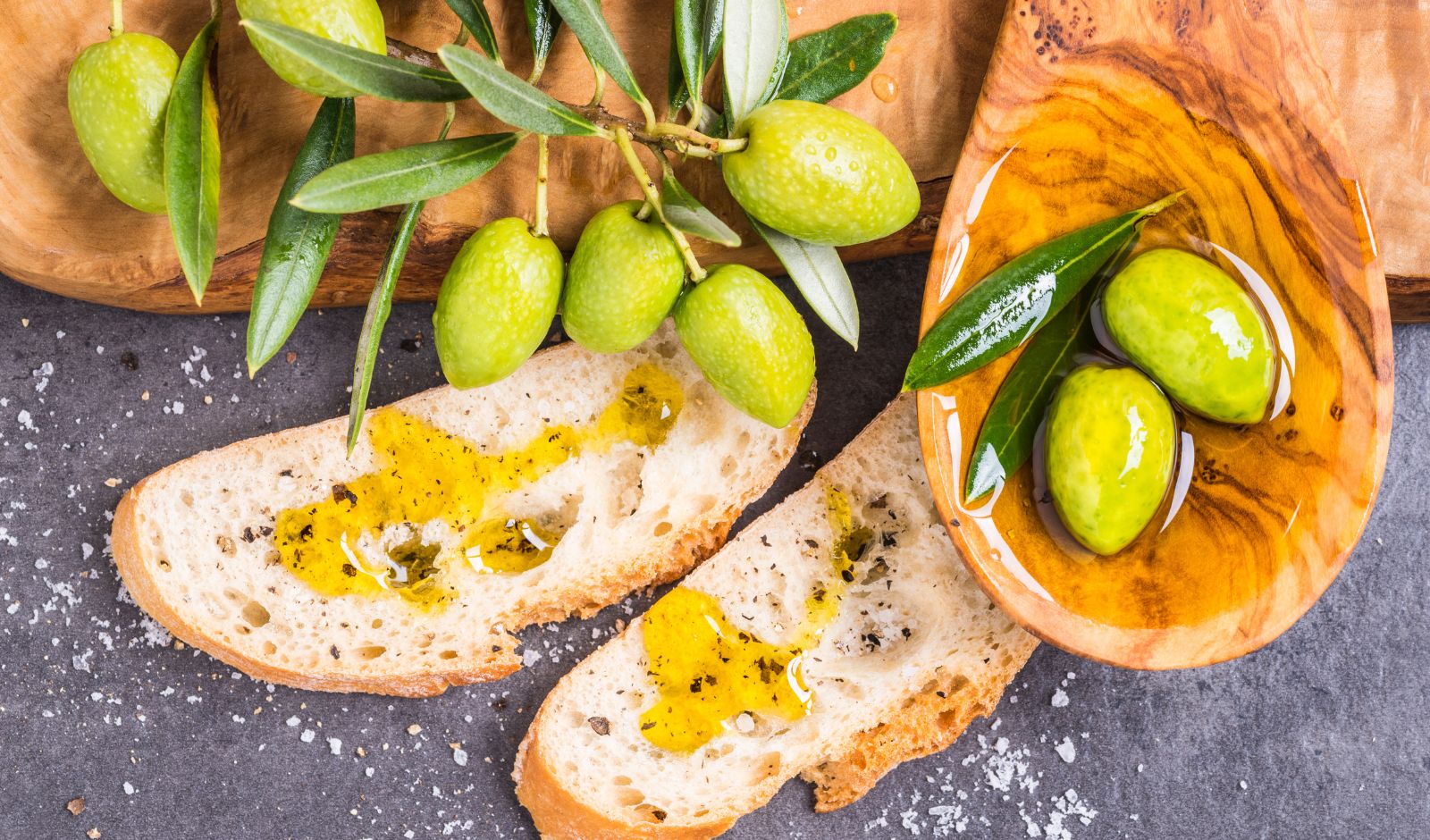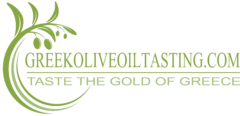
The History of Olive Oil
The olive tree is native to the Mediterranean although it remains unclear whether it originated in ancient Greece or Asia Minor. The use of olives though dates back to the 8th millennium BC when Neolithic people collected wild olives.
It is considered that Phoenician traders introduced the production of olive oil in Greece as well as the rest of the Mediterranean, though the trees themselves have existed in Greece long before that as evidenced by the fossilized olive tree leaves found in the volcanic rocks in the islands of Santorini and Nisyros. These fossils are considered to be around 50,000 to 60,000 years old.
Throughout the history of Greece, the olive tree has been a symbol of peace and prosperity, so much so that its origin is attributed to the goddess Athena. In the founding myth of Athens, Athena and Poseidon, competed for the favor of having the new city named after them and becoming its protector. The two gods appeared before the citizens and presented gifts. Poseidon struck the ground with his trident and gifted the city with flowing salt water. In turn Athena planted a seed, which grew into an olive tree on the rocky hill presently known as Acropolis. Athena’s gift, which could provide shelter, nourishment, medicine and heat was considered superior and she was crowned victor. The city was named Athens in her favor and the olive tree worshipped. Its oil served as an offering to the Gods and the dead.
In ancient Greece the olive tree symbolized wealth and abundance. Its cultivation is estimated to have begun in the Minoan period of Crete around 3,500 BC. The production of olive oil in Crete is thought to have been connected to the island’s prosperity and success in trade. It was often referred to as “liquid gold” in Homer’s “The Iliad” and “The Odyssey”. Before the 6th century BC, olive oil was not yet consumed but rather used for ceremonial purposes, the most notable among them being the Olympic Games. The athletes were massaged with it in the hopes that they would be blessed with the wisdom, power and strength of Athena. The winners were awarded olive leaf crowns and olive oil.
By the 6th century BC, the olive tree was so revered that the great Athenian legislator Solon outlawed its felling and transgressors were punished with exile or even death. Under his legislature olives and olive oil were the only goods allowed to be exported, a law which further solidified their importance.
According to the Greek Historian, Herodotus, Athens was the center of olive cultivation. Additionally, the island of Evia was full of olive trees before olive cultivation became known in Iran and Babylonia. In the 4th and 5th centuries BC olive oil was widely used as a medicinal product and even Hippocrates himself dubbed it the “great healer”.
Although the olive tree may no longer be worshipped in Greece, every Greek person values and acknowledges its importance not only in the country’s cuisine but also its culture. Nobel Prize winner Greek poet Odysseas Elytis wrote: “Greece is a vine, an olive tree and a boat”. As stated by the tragedian Sophocles, the olive tree is the protagonist of Greek nature and olive oil is the protagonist of the Greek diet.
Despite its small size Greece is currently third in the world in olive oil production due to the fact that 80% of the country’s orchard land is devoted to olive agriculture. The number of olive trees presently planted in Greece is estimated to be around 120 million. Greece has the most consumption of olive oil per capita, numbering at 20 kilos each year, and over 50% of the national olive oil production in consumed in the domestic market.
Over 80% of the olive oil produced in Greece is Extra Virgin Olive Oil and its organoleptic characteristics distinguish it for its quality. The ideal climactic conditions for olive oil production include a mild temperature climate with a lot of sunlight and temperatures without great fluctuations. Most of the production takes place in small farms and family-run businesses and it subsequently provides occupation and income for more than 500 thousand Greek families. The olives are harvested as soon as they ripen so as to achieve the best quality of olive oil. The harvesting is a time consuming and expensive process as it is mostly done by hand so as to not damage the olives. The transportation time of the olives to the press is short which also contributes to the product’s high quality.
The production and export of olive oil contributes greatly to the Greek economy and so the Greek legislation provides for systemic quality control of specialized organizations in order to protect the quality of the final product. Greece currently has 17 Protected Designations of Origin (PDO). The Koroneiki variety, nicknamed the King of the Grove, is considered the best olive variety for the production of olive oil. It originates in the area of Korone in Messinia, Peloponnese and it produces very small fruit with very high levels of polyphenols, the natural antioxidants found in plants that protect the human body against free radical damage. The olive oil produced from the Koroneiki variety has a complex aroma which is lightly affected by other herbs and vegetation growing in the proximity of the tree. It is fruity with grassy tones and flavors reminiscent of bitter almond and spicy pepper. It is also known for its long shelf like as well as its reduced free fatty acids.
Shop
Elaiolado Makris PDO is extracted exclusively by mechanical means from the fruits of the indigenous Makri olive of the species Olea Europea, which is cultivated in the designated zone of Alexandroupolis, from the village of Makri
It is typical of Lesbos and mainly produced from the Kolovi variety, which endows it with its strong, fruity character. Its blend however, includes also the varieties of Adramytiani and some Latholia.
This unique extra virgin olive oil is produced exclusively by Koroneiki variety olive trees, up to 100 years of age, in the small mountainous village of Ancient Skillountia, at the sacred land of Olympia
Our organic olive trees of Koroneiki variety, in the sacred land of Olympia, remain untouched by human intervention.
